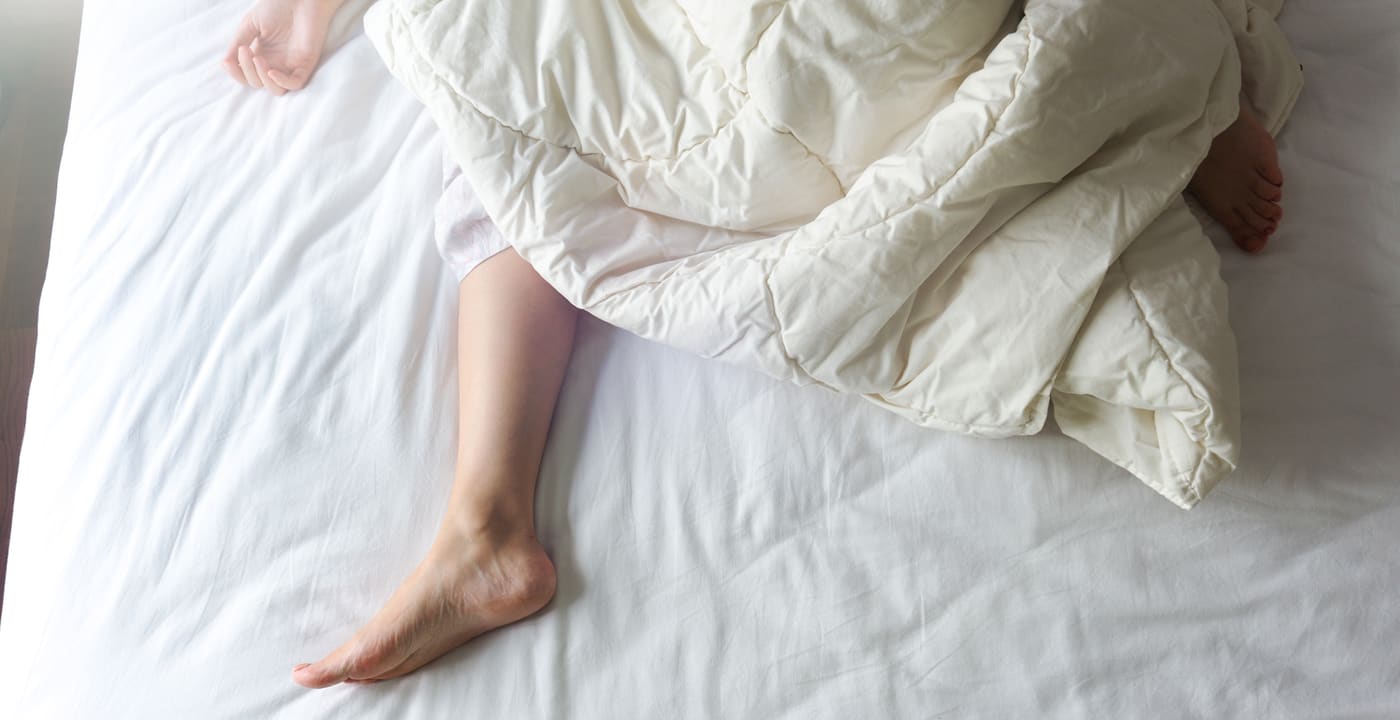How a good night’s sleep can lead to weight loss

A good night’s sleep can do more than improve your mood. It can help with your weight-loss goals, says Murali Maheswaran, DO, a sleep medicine specialist.
Dr. Maheswaran recently met with a Center for Weight Loss & Wellness support group to talk about the ways sleep and weight impact each other.
If you’ve ever found yourself particularly ravenous after a night of bad sleep, you aren’t imagining things. Dr. Maheswaran explains that sleep has a significant impact on two hormones that regulate hunger: ghrelin and leptin. Ghrelin, the hormone that signals hunger, decreases during sleep. Conversely, leptin, the hormone that signals your brain that you are full increases during sleep. If you aren’t getting enough deep sleep, your ghrelin level goes up and your leptin level goes down resulting in hunger.
“What’s tricky with sleep is, some of us know we’re having issues while others don’t,” Dr. Maheswaran said. “We can assume we sleep through the night but can actually be having multiple awakenings.” These “microarousals” that can last a few seconds can prevent you from reaching the deep sleep stages you need to wake up feeling refreshed and to keep your hormones in balance. “Anything that disrupts sleep has an impact on weight loss.”
There are approximately over 70 different types of sleep disorders. Dr Maheswaran says that there are some warning signs that can alert us of a sleep problem such as difficulties falling asleep, frequent nighttime awakenings, difficulties going back to sleep, snoring, unusual behaviors during sleep, fatigue or sleepiness.
For weight-loss patients, one of the most common sleep disorders is obstructive sleep apnea. While sleep apnea occurs in people with a normal BMI, a bigger neck is a risk factor. That’s why football players have a higher chance of sleep apnea. Genetics and mouth structure also play a role.
Obstructive sleep apnea is a structural problem. A crowded airway leads to an eventual partial or complete blockage of breathing for seconds at a time contributing to disrupted sleep with or without the person’s knowledge. The main culprits of a crowded airway include a long soft palate and uvula (or, as Dr Maheswaran call it, “curtains in the back of the throat”), base of tongue obstruction, large tonsils, large neck size and, to a smaller extent, nasal obstruction. These culprits can cause snoring and unfortunately LOUD snoring, which means your partner’s sleep is also interrupted.
“It’s a vicious cycle,” he told the support group. “Sleep apnea can cause difficulties losing weight and weight gain, which then worsens sleep apnea. It’s hard to get out of.”
Treatment for obstructive sleep apnea ranges from surgery to a mouthpiece that holds the jaw forward. The most common treatment, however, is a CPAP machine that continuously pushes air into the airway, Dr. Maheswaran says. And up to 70 percent of bariatric surgery patients are cured of their apnea after losing weight.
Whether you suffer from apnea or not, sleep hygiene can be critical to improving your health and wellness.
Dr. Maheswaran recommends limiting carbs, which can send blood sugars on a “rollercoaster”, eating at regular times every day and avoiding nicotine, caffeine and alcohol, which can keep you from getting to the deeper, more restful stages of sleep even if you feel like you’re able to fall asleep.
“Save the bed for sleep or sex,” he says. “Not for reading or watching TV.” Light from screens or reading lamps can alter your circadian rhythms and make it harder to sleep. But, he admits, even he struggles. “I’ve got my phone. I get up and I’m looking at it and it screws me up,” he says. “I know what people are going through.”
Rather than focusing on what time you get to bed, Dr. Maheswaran says a fixed wake-up time is more important. “It’s easier to force yourself to wake up than it is to force yourself to sleep,” he says.
If you’ve tried those basic tips and still find yourself waking each morning not feeling refreshed, it might be time to visit a sleep medicine clinic. You can even do a sleep study at home, though the in-lab studies are much more detailed.
Your body needs deep sleep to rejuvenate and repair and not getting it can lead to all kinds of health problems, not just weight gain. “I can give a talk on sleep disorders in almost any field: cardiology, rheumatology, oncology,” Dr. Maheswaran says. “Sleep is a big deal.”
Learn more about MultiCare Sleep Medicine or to find a sleep medicine location near you. Learn more about weight loss services at MultiCare.




